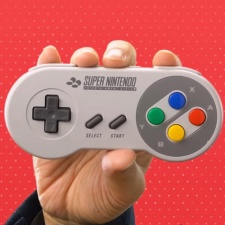A few years ago I bought a number of the Metal Slug games on Google Play. I’d been a big fan of them after playing ports to PC, and was happy to play through them on my phone. Which I did, clearing each of them, and pretty soon forgetting about them for a while. Then, when I came back and reinstalled them a couple of years later, I found each of them crashed at startup. Confused, I looked for an answer and found that, since the games hadn’t been updated by publisher SNK, they no longer worked with that version of my Android OS.
It was definitely a bit of a gut-punch, having spent even a little bit of money on those games and being unable to play them. They’ve now been patched and are able to be played, but it still leaves a slightly sour taste in my mouth knowing how easy it is to lose access to a product you paid for. If you’re familiar at all with game preservation, this is already beginning to sound familiar to you.
The problem of preservation
Then when I went to university, one of the modules I took was in video games, and one of the main subjects of that was video game preservation. It bounced off the topic of film preservation - back when movies were put onto highly flammable rolls of film, entire catalogues would burst into flames and be lost. Video games are no different. I learned that even disks for console games can degrade, suffering an effect known as bloom, and that cartridges’ contact points can rust and be sheared away.
It surprised me to realise that video games, a relatively young medium, could be suffering the kind of loss that we associate with early film and ancient literature. There are a lot of issues preventing museums or libraries simply hosting all of them, whether in terms of logistics, or business and licensing issues. But, whilst console and PC are the games that receive this sort of attention, there’s also one key platform that seemingly hasn’t had that much written about it; mobile gaming.
Where does a mobile game exist? Not on a cartridge, a disk or even technically on a hard drive within a phone, but in servers and digital infrastructure. What happens if the storefront shuts down, or for some reason these games are simply no longer available? Unlike a disk or cartridge you can’t shop around for a second-hand copy. It’s a problem that is faced not only by mobile, but PC and digital storefronts on consoles too. Howevert without a physical alternative the issue is much more pronounced for mobile.
Owned, but not owned
Digital ownership has been an equally hot topic. After all, do you really own something you can only download at the whim of the developer or publisher? That’s not to say this is some sinister effort on the part of the powers that be, licensing and online stores face difficulties in how licensing is conducted and how they can continue to provide a good service to customers, whilst not falling afoul of businesses.
However, another problem is in the OS being used. When an OS is updated, occasionally apps slip behind, whether that’s due to oversight, or because the publisher and developer simply no longer exist. At that point, to whose responsibility does it fall, to keep it available, and where does that then leave players?
Ultimately, it’s a problem with no easy answers. Developing an emulation or compatibility system would be good, but as I don’t have the relevant background in coding or development that may be (and indeed probably is) much more of an undertaking than I make it sound. Would it be a legal question of a publisher or developer’s responsibilities towards their customers? All of these are problems that sooner or later, as mobile gaming becomes a much more legitimate and widespread way of playing games, they will have to grapple with.
There are organisations that already specialise in game preservation, like the National Videogame Museum here in the UK. But for games that are as big of a business, and as ephemeral as mobile, it won’t be as simple as them finding an arcade cabinet or old console to dust off. It’s a problem that’s on the horizon, maybe, but that horizon is rapidly approaching.
Addendum: It seems with the announcement yesterday that Deus Ex Go, one of the entries in Onoma's (formerly Square Enix Montreal) 'Go' series of games would be shuttered alongside the studio's other mobile titles, with no indication of a refund or the ability to access this premium title once shut down, even with a copy saved, that this was a remarkably prescient look at video game preservation.






















